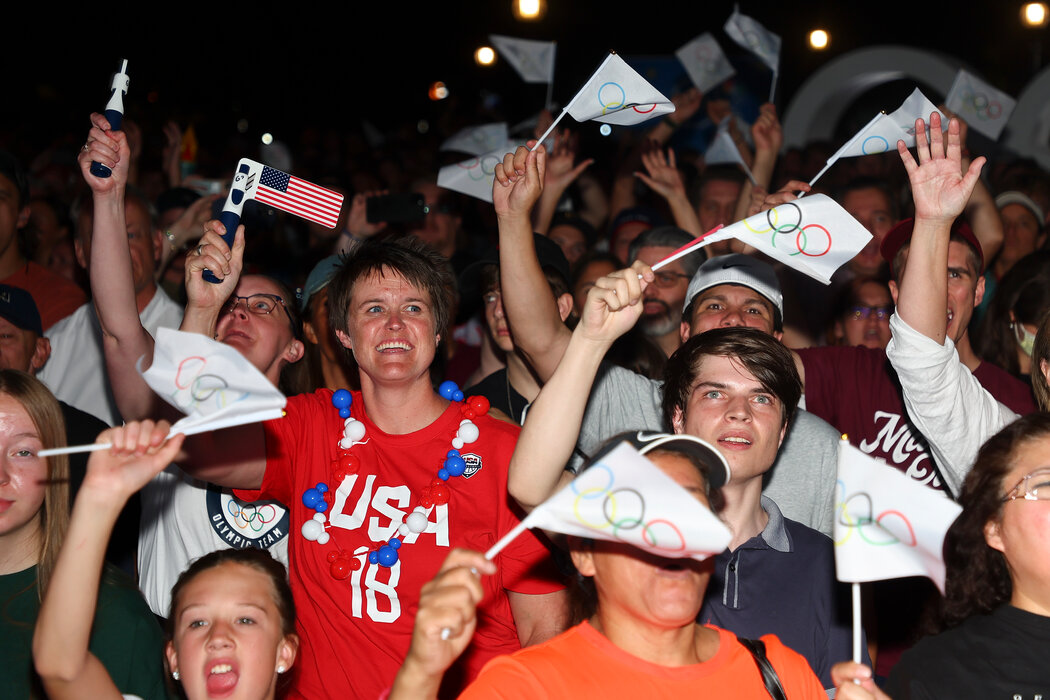由于美国政府和世界反兴奋剂机构(WADA)就如何处理中国顶尖游泳运动员的阳性药检结果存在分歧,WADA 试图阻止美国国家药物控制政策办公室主任拉胡尔·古普塔博士参加本周在土耳其举行的 WADA 执行委员会会议,以阻止其参与讨论中国运动员兴奋剂案件。白宫对此表示强烈反对,并认为此举意在削弱美国在反兴奋剂问题上的立场。WADA 则指责美国通过相关法律,试图干涉国际反兴奋剂体系的运作,并对美国针对中国运动员的指控展开调查。事件的起因是《纽约时报》今年 4 月发布的一份调查报告,揭露了 WADA 对 20 多名中国游泳运动员阳性药检结果的处理方式。此次争执将在本周四的会议上达到高潮,WADA 将发布由独立检察官撰写的最终报告,内容涉及 WADA 对中国兴奋剂案件的处理。
Original Title: Regulators Seek to Block U.S. Representative From Talks on China Doping Cases
Summary: In recent weeks, a dispute between the United States and the world’s anti-doping watchdog over how to handle positive tests by top Chinese swimmers has escalated, drawing in a powerful new player: the Biden White House. Last month, the World Anti-Doping Agency notified the White House that its officials were seeking to ban a representative of the U.S. government from any discussion on the positive tests by Chinese athletes at a meeting of WADA leadership this week in Turkey. That U.S. representative is Dr. Rahul Gupta, the director of the White House Office of National Drug Control Policy. His exclusion from the inquiry is seen as part of a larger effort by WADA to push back against U.S. criticisms of its handling of doping accusations and to try to block a federal investigation into the matter. Critics of WADA say that the agency’s move to bar Gupta is aimed at undermining the ability of the United States to raise concerns about how China’s tests have been handled ahead of the last two Summer Olympics and to weaken calls for greater transparency and accountability in the global anti-doping system. The White House has responded forcefully, according to documents reviewed by The New York Times and interviews with government and anti-doping officials, with a showdown expected at Thursday’s meeting in Turkey. “Any attempt to implement preliminary measures will be met with strong objections and appropriate action by the U.S. government,” a senior White House lawyer wrote in a nine-page letter to WADA late last month, which was not previously made public. The Gupta episode comes as WADA continues to pressure the United States in other ways. The agency has refused to provide documents to respond to an inquiry by a Congressional committee. In July, the International Olympic Committee, WADA’s biggest supporter, awarded the 2034 Winter Games to Salt Lake City, essentially on the condition that local officials help to limit investigations by the Justice Department, the FBI and Congress. In August, WADA sued its loudest critic — the United States Anti-Doping Agency — in Switzerland, citing “continued defamatory statements,” according to a letter WADA sent to its executive committee. Meanwhile, WADA has continued to criticize the U.S. approach to doping cases, repeatedly noting that most American professional sports are not governed by the global anti-doping system. Internally, WADA has been conducting a leak investigation to determine who provided documents to The Times, which in April published an investigation revealing the agency’s handling of more than 20 positive tests by Chinese swimmers. Dr. Gupta, the White House’s top drug control official, also serves on WADA’s board, representing not only the United States but also more than 40 countries in the Americas. Only the International Olympic Committee’s contribution exceeds that of the United States to WADA’s $40 million annual budget. At a meeting last week, the WADA council, which represents public bodies from five regions around the globe, discussed the potential exclusion of Gupta from the executive committee meeting this week in Turkey, according to two officials with direct knowledge who were not authorized to speak publicly. At that meeting, representatives from other regions agreed to publicly oppose Gupta’s exclusion on Thursday. Just in March, WADA honored Gupta at a ceremony. The effort to exclude Gupta has been underway for weeks, prompting the White House’s strong response. The White House letter to WADA said that senior WADA leadership had orchestrated the attempt to sideline Gupta by making anonymous conflict-of-interest complaints that accused him of not disclosing his knowledge of the criminal investigation into the Chinese cases when attending meetings. Responding to questions from The Times, James Fitzgerald, a WADA spokesman, said that claims that the agency was planning to bar Gupta from attending and that WADA’s top officials, the president, Witold Bańka, and the long-time director general, Olivier Niggli, had concluded that Gupta had a conflict of interest were inaccurate. Members of the WADA executive committee will receive copies of a final report by an independent investigator hired by the agency into its handling of the Chinese doping cases at Thursday’s meeting. Preliminary findings by the investigator, released before the Paris Olympics this summer, cleared the agency of any wrongdoing. The discord between WADA, Olympic officials and the United States predates the current crisis, stemming from a 2020 U.S. law that allowed American law enforcement to pursue doping cases around the world. It is such powers that most concern global anti-doping officials, who increasingly fear retaliatory laws in other countries. In June, the head of FINA, the sport’s governing body, was approached by federal investigators while attending U.S. Olympic trials and asked to provide information related to the Chinese cases. The episode has left some international sports officials apprehensive about traveling to the United States, fearing being drawn into criminal cases.
Original article: https://cn.nytimes.com/sports/20240911/white-house-china-doping-wada/zh-hant/?utm_source=RSS

